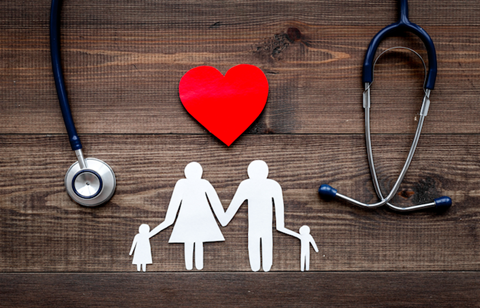
New research has suggested that slower-than-anticipated uptake of some group protection benefits may be due to data privacy fears.
According to a study by Legal and General, 19% of staff questioned who had access to employee assistance programmes (EAPs) revealed that privacy concerns were a barrier to usage – a figure that rose to nearly a quarter (23%) among women.
Colin Fitzgerald, distribution director, group protection at Legal and General, believes fears about how data is managed and used by HR is possibly a reflection of low “employer trust" rather than low trust about the products themselves.
He said: "Employers offer these products to help their people be well, get better and be supported. Usage will never reflect badly on the employee. This is where a strong culture of trust in the workplace is so important.”
The data found 34% of employees rated all group protection benefits as not being relevant to their and their family’s health needs, while almost a third (30%) do not think their critical illness policy is relevant to their health, wealth and happiness. For this benefit, 17% overall cited privacy concerns, rising to 21% among men.
Fitzgerald added: “Employers are investing huge amounts of money into their employee benefits with what they believe is the best interests of employees at heart. It is worrying to find that so many employees don’t connect the relevance of these to their wellbeing.”
When it came to income protection, a quarter (25%) of staff said they did not think the product was relevant to their wellbeing, with 15% of these citing privacy concerns and a further 15% claiming their employer does not really communicate the existence or relevance of benefits.
Katharine Moxham, spokesperson for Group Risk Development (Grid), said: “Often, when employees don’t trust something it’s because they don’t fully understand or don’t remember how it can help them or how it fits in with the overall picture.”
She added: “Group protection is absolutely confidential and employees won’t be disadvantaged by taking advantage of them. In fact, the opposite is true in fact as they can provide invaluable help, advice and support for not only the hardest of times but also for things like moving house, flooding or finding emergency childcare.”
Moxham explained that Grid's own data found group protection - especially EAPs - have come into their own during the pandemic. She believes this will continue to be the case because mental health support is likely to prove an essential element of an employee benefits programme for some time to come.
Fitzgerald concluded: “If there’s one strong message here for providers and intermediaries, it’s that these benefits are still considered on a standalone product basis; as an insurance solution when things go wrong.
“We need to work together as an industry to help employers better integrate benefit and wellbeing agendas, with an emphasis on prevention. More relevant and targeted communication has a strong part to play here.”






![[FisherA]_portrait_web_crop_newstyle](https://d1m12snq5oxhll.cloudfront.net/Pictures/100x67/9/2/6/108926_fishera_portrait_web_crop_newstyle_714878.jpg)




